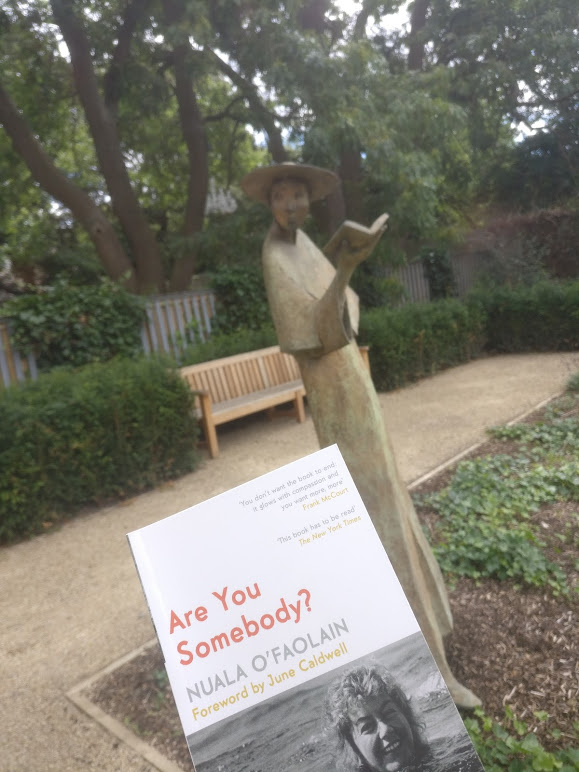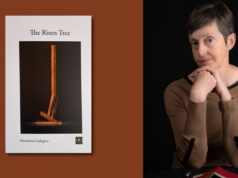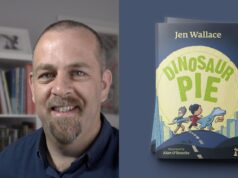Mia Colleran pays a visit to the current exhibition celebrating Nuala O’Faolain at the Museum of Literature Ireland.
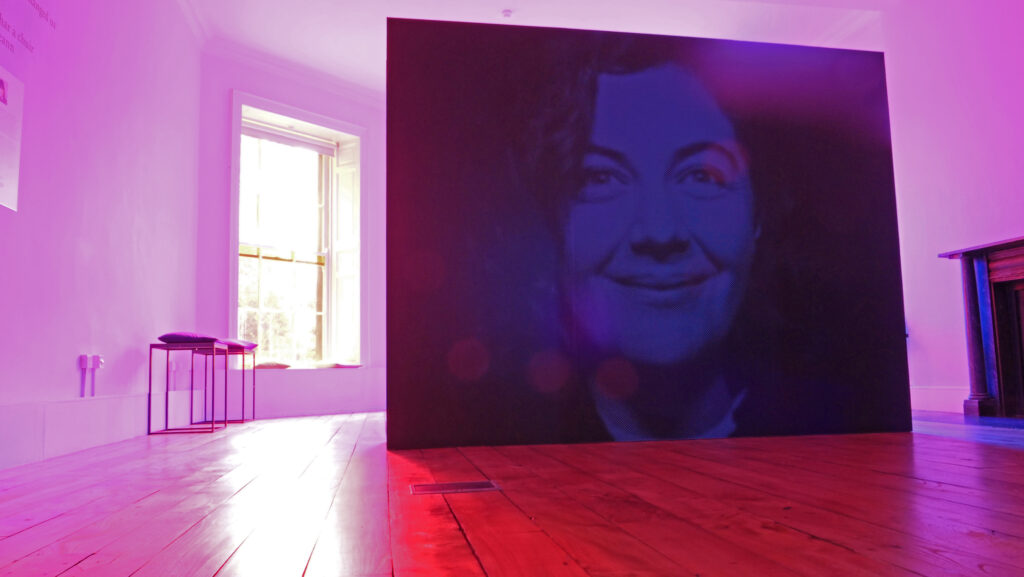
‘Somebody: Nuala O’Faolain and a Book that Changed Us’, is the title of the new temporary exhibition at the Museum of Literature Ireland (MoLI) at 86 St Stephen’s Green, which opened on 20 July 2020. Though many of us may have already read the ground-breaking memoir Are You Somebody? by Nuala O’Faolain, published by New Island in 1996, the exhibition will make you itch to re-read it or to pick the iconic memoir up for the first time. June Caldwell, who wrote the preface to the 2018 edition of Are You Somebody?, is the curator of the exhibition and Simon O’Connor (director of MoLI) and Benedict Schlepper-Connolly (digital curator at MoLI) provided the artistic direction. Are You Somebody? already went into another print run in August 2020, following the demand for the book, with readers new and old picking up a copy, their interest sparked, no doubt, by the exhibition.
Why this book and why now? I was curious and asked Simon what drew him to Are You Somebody?, to which he replied, ‘books like Nuala’s come along and they are important truth-telling projects […] there’s a new audience for Nuala’s work now, because it’s still relevant, and there’s a younger audience who may not have come across it or read it.’ June echoed Simon, saying, ‘Nuala changed the entire landscape of memoir in Ireland, not just for women writers, but all writers. She burst a timeline in the Irish psyche that allowed everyone else to say, “Right, we’re done with oppressive church and state nonsense, it’s now time for the individual, for our own private truths in our own hands to be aired as we want to air them”. I really do think she speeded this process of truth-telling along.’
Originally, the temporary exhibition was created for a pre-COVID-19 environment and June, Simon and Benedict had to quickly adapt to the new restrictions; the content was edited in to a two-hour-long video installation that viewers can watch from the window seats in the Iveagh Room. Over twenty academics, writers, activists and family members—each shot in a striking portrait with accompanying quotes from Nuala—speak about the writer and the influence both she and her work had on them. She is portrayed from all angles: sisters Deirdre and Gráinne reflect on the accuracy of her depictions of their childhood; writer Emilie Pine speaks about Nuala exposing ‘the fiction that we are all OK’, Nuala’s editor Anthony Galvin describes his meetings with her as she wrote Are You Somebody? (which was initially supposed to be a preface to a collection of her journalism) and Evie Sammon, a young Kildare County Councillor, cites the book as one of the reasons she chose a career in politics.
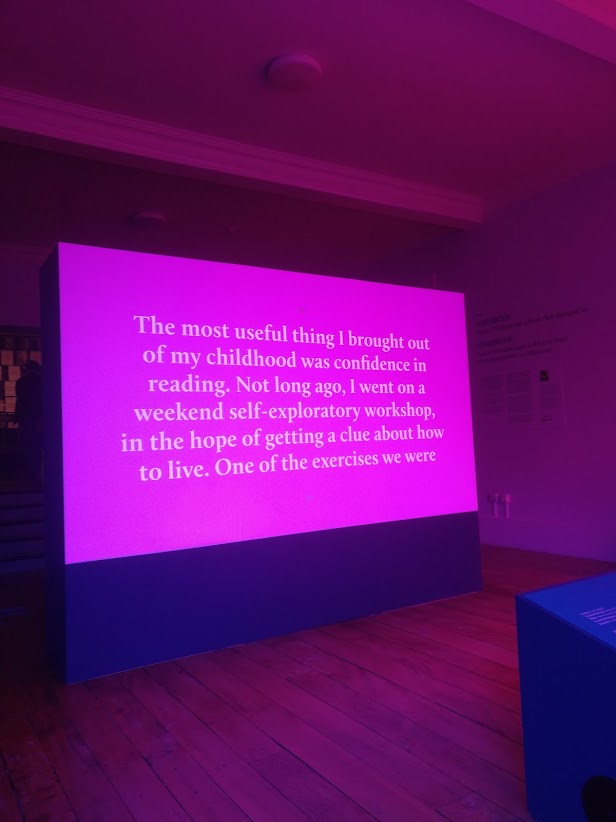
June, who was tasked with finding and interviewing all of the contributors, said, ‘I wanted to trace the quieter influences as well as those that had not yet come to the fore […] Really, every time I interviewed someone, they would mention someone else who had been connected to the work in some way.’ The installation artfully depicts Nuala in both the past and the future: in one speaker’s eyes she was a role-model who made writing feel like a more possible hobby to pursue and in another speaker’s eyes she was the journalist whom they read in the paper, a staple of Irish life. Simon explained the importance of commissioning living artists to curate exhibitions in order to ‘keep everything moving in the present’ and June has certainly portrayed Nuala’s work as the agile and always-relevant writing that it is.
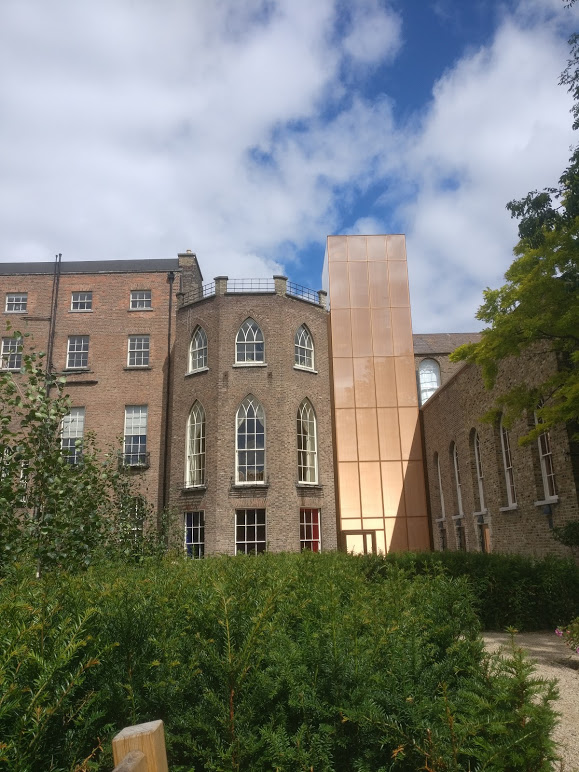
Small details make the exhibition stand out—after all, it’s not often you can convince people to sit for two hours to watch an interesting documentary about a deceased writer—with special attention paid to the shifting, moody lighting (the windows were recoloured), the speed of the editing on-screen and the haunting and beautiful score that Benedict composed (inspired by a Wagner piece that Nuala admired). The exhibition room has, in Simon’s words, ‘a sanctity and a very abstract sense of memorial’.
This exhibition is not a biography of Nuala O’Faolain … instead it encourages an interest in her work. It is hard to go to the exhibition and not want to tell your own story of the first time you encounter Nuala and her work.
If Simon O’Connor could be included in the video installation, what would he say about Nuala’s work and its effect on him? ‘What struck me reading the second time was how exceptional a prose stylist she is. One of the things I love about the exhibition with the excerpted readings is that you get to see how good a writer she is. I think that’s something that can be underestimated when the content itself is so socially and politically important. The writing is really amazing.’
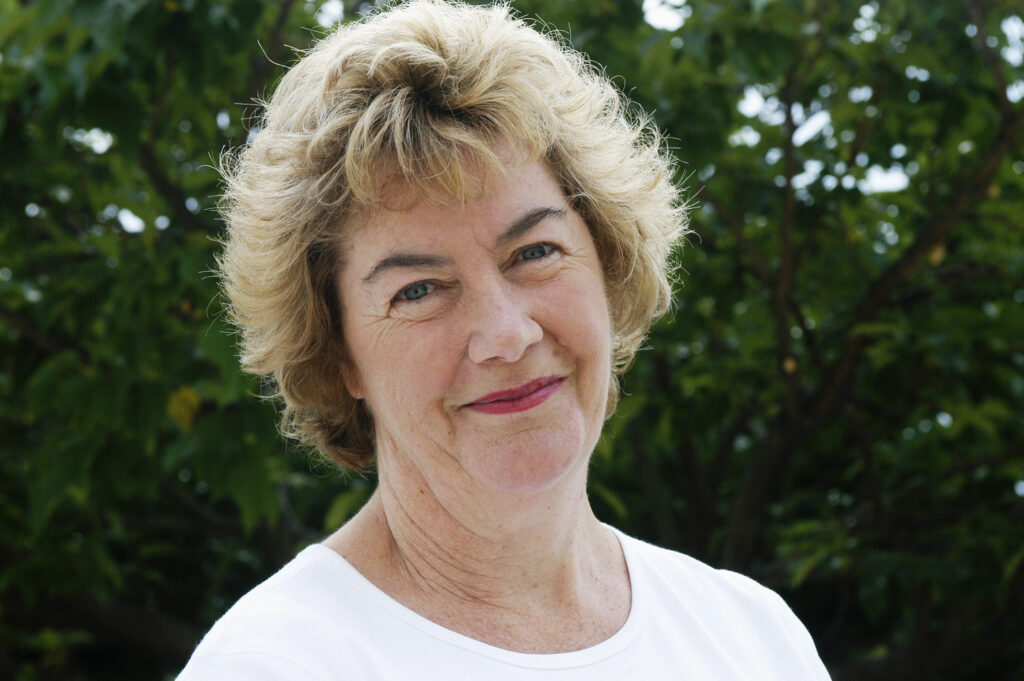
The answer seems obvious after watching the video installation but, still, I was curious to hear June’s own response when I asked her what Nuala O’Faolain adds to our Irish literary heritage, to which she replied, ‘A voice for the voiceless. Permission to write truth no matter the supposed consequences. Agency: Nuala received hundreds (if not thousands) of letters from all over the world, people who never thought they could share their painful past or complex experiences. She has not only given us a searing beautifully written memoir that I don’t think anyone can match in terms of personal experience and breadth of experience, but she has also given us an amazing history lesson in the lives of Irish women in an Ireland on the brink of change. It is a vital piece of sociological reference as well as personal insight. What they refer to in the publishing world as a “gamechanger”. It’s just so sad that ten years later, she was gone.’
***
‘Somebody: Nuala O’Faolain and a Book that Changed Us’ is currently running at MoLI, UCD Naughton Joyce Centre, 86 St Stephen’s Green, Dublin 2
For bookings and more info see website:https://moli.ie/whats-on/somebody/
Mia Colleran is an award-winning writer and bookseller and she has reviewed books for
The Guardian, The Irish Times and The Irish Independent.
@miacolleran








